The 2025 International Summer School Program on Climate Change and Related Risks is a flagship ten-year international education initiative proposed by Fudan University, with strong support from international organizations and programmes including the World Meteorological Organization (WMO), the International Research Programme on Monitoring, Analysis, and Prediction of Air Quality (MAP-AQ), and the Integrated Research on Disaster Risk (IRDR) programme. As a successful example of long-term collaboration between WMO and universities, the program has drawn broad attention and participation from leading experts affiliated with the United Nations Framework Convention on Climate Change (UNFCCC), the United Nations Office for Disaster Risk Reduction (UNDRR), the Intergovernmental Panel on Climate Change (IPCC), the Global Atmosphere Watch (GAW), and others. It aims to cultivate young talent with a global scientific outlook and strong academic expertise, contributing to international capacity-building in climate change response and governance.
On June 30, 2025, the International Summer School on Climate Change and Related Risks was inaugurated at Fudan University's Jiangwan Campus. This year's theme, "Human Activity and Weather/Climate Extremes and Its Impacts," highlighted growing global concern over the influence of human activity on extreme events. Nearly 80 participants from 16 countries joined the program. At the opening ceremony, speeches were delivered in succession by Professor Lei Zhou, Vice President of Fudan University; Professor Celeste Saulo, Secretary-General of the WMO; Dr. Zhenlin Chen, Administrator of the China Meteorological Administration; Mr. Marco Toscano-Rivalta, Head of the UNDRR Asia-Pacific Office; and Dr. Rajesh Kumar, Co-Chair of MAP-AQ.
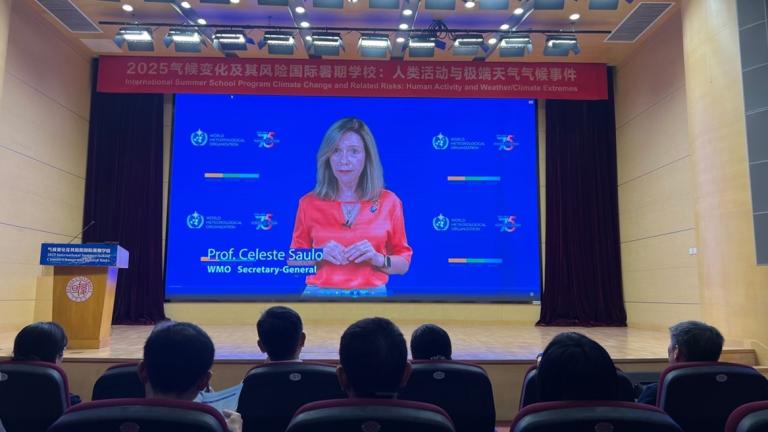
Professor Celeste Saulo emphasized in her video the crucial role of the younger generation in global climate governance. She encouraged all participants to actively engage, ask questions, and foster international cooperation. "WMO is proud to have a MoU with Fudan University. We are delighted to support this initiative through our Science and Innovation department, including education and training activities." said Professor Celeste Saulo. She expressed hope that the program would help raise youth awareness, deepen their understanding, and encourage greater engagement in addressing climate challenges.
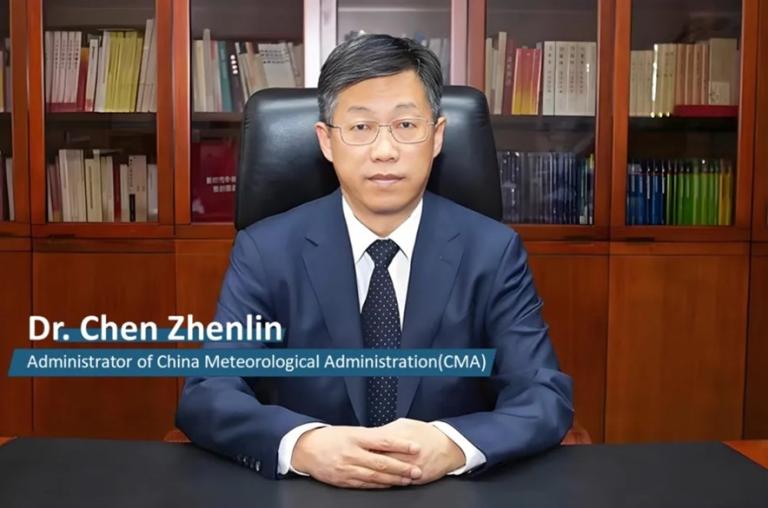
Dr. Zhenlin Chen emphasized that the China Meteorological Administration is committed to improving the accuracy and timeliness of weather forecasts and is working closely with Fudan University and other related institutions to better serve national development and public well-being. He also expressed the Administration's support for the WMO Youth Initiative, highlighting the important role of young people in advancing the future of meteorology.
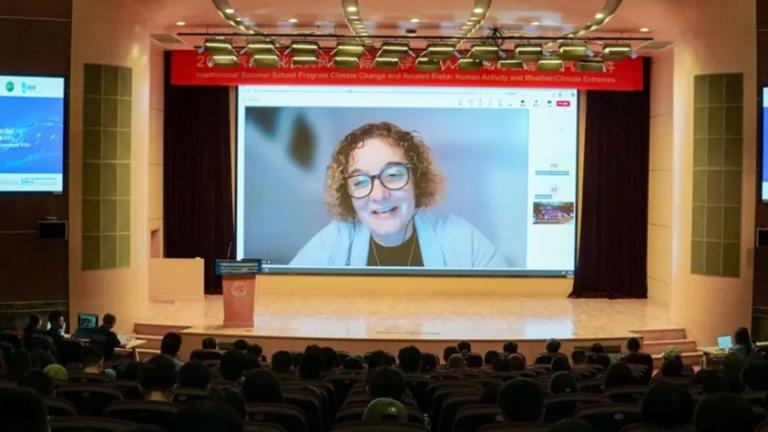
Subsequently, Dr. Véronique Bouchet, Director of the Science and Innovation Department of the WMO; Professor Wang Guihua, Chair of the Department of Atmospheric and Oceanic Sciences at Fudan University; and Professor Tang Xu, Executive Director of the Fudan IRDR International Centre of Excellence, introduced the key organizing institutions. These included the WMO's Science and Innovation Department and its GAW Programme, the Department of Atmospheric and Oceanic Sciences and the Institute for Atmospheric Sciences at Fudan University, the MAP-AQ Asia Regional Office, and the Fudan IRDR International Centre of Excellence. Their introductions provided participants with a comprehensive understanding of the international context and academic foundation supporting this program.
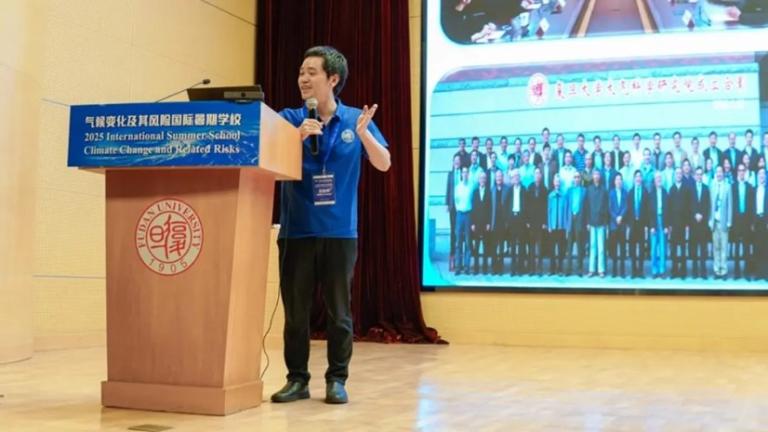
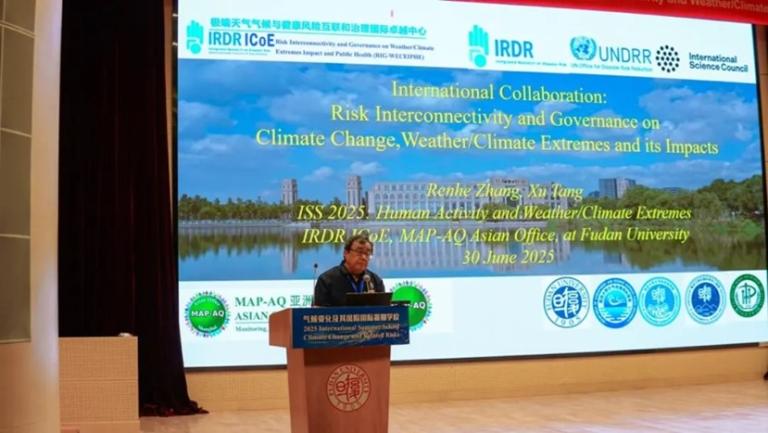
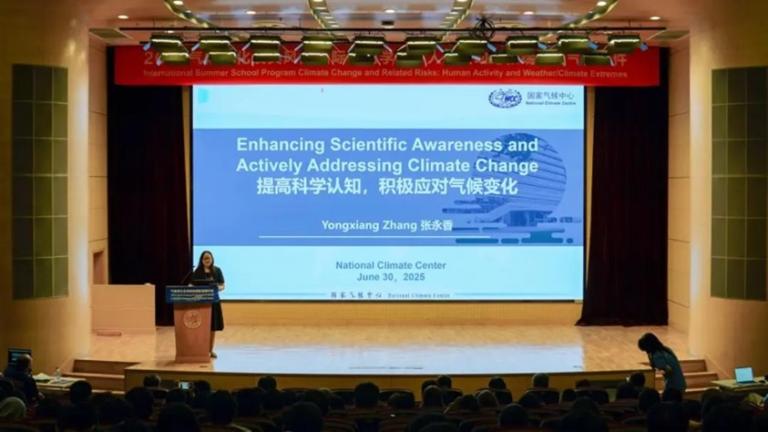
This year marks the second edition of the Summer School, which brings ten internationally renowned scholars to Shanghai to deliver lectures. Over the next three weeks, participants will engage in four core academic modules: (1) Weather and climate extremes under global warming, (2) Impacts of human activity, (3) Interactions among land, ocean, and atmosphere, and (4) Risk interconnectivity, mitigation, and adaptation. The program combines thematic seminars, group discussions, field visits-including to the Yangtze River Estuary Wetlands to explore climate and atmospheric environmental changes-and hands-on assignments, offering students a rich, interdisciplinary, and multi-dimensional learning experience.






